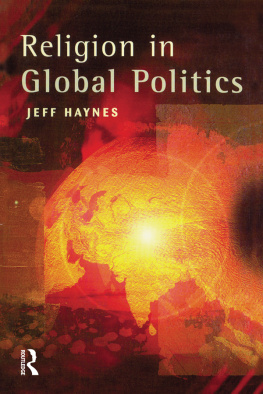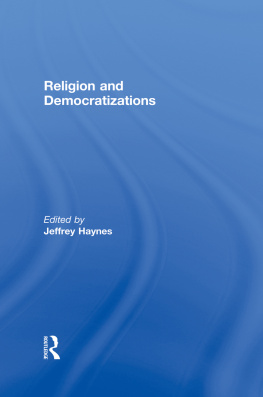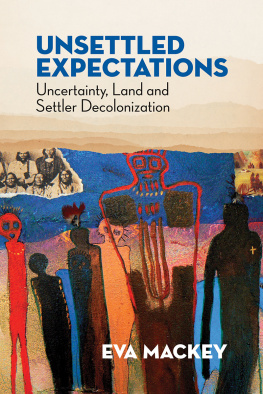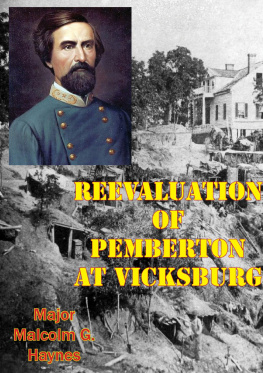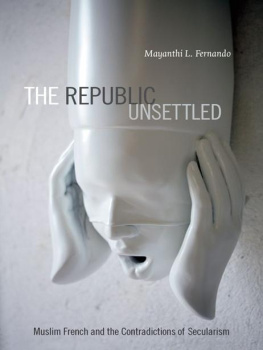Sam W. Haynes - Unsettled Land
Here you can read online Sam W. Haynes - Unsettled Land full text of the book (entire story) in english for free. Download pdf and epub, get meaning, cover and reviews about this ebook. year: 2022, publisher: Basic Books, genre: Politics. Description of the work, (preface) as well as reviews are available. Best literature library LitArk.com created for fans of good reading and offers a wide selection of genres:
Romance novel
Science fiction
Adventure
Detective
Science
History
Home and family
Prose
Art
Politics
Computer
Non-fiction
Religion
Business
Children
Humor
Choose a favorite category and find really read worthwhile books. Enjoy immersion in the world of imagination, feel the emotions of the characters or learn something new for yourself, make an fascinating discovery.

- Book:Unsettled Land
- Author:
- Publisher:Basic Books
- Genre:
- Year:2022
- Rating:3 / 5
- Favourites:Add to favourites
- Your mark:
- 60
- 1
- 2
- 3
- 4
- 5
Unsettled Land: summary, description and annotation
We offer to read an annotation, description, summary or preface (depends on what the author of the book "Unsettled Land" wrote himself). If you haven't found the necessary information about the book — write in the comments, we will try to find it.
Unsettled Land — read online for free the complete book (whole text) full work
Below is the text of the book, divided by pages. System saving the place of the last page read, allows you to conveniently read the book "Unsettled Land" online for free, without having to search again every time where you left off. Put a bookmark, and you can go to the page where you finished reading at any time.
Font size:
Interval:
Bookmark:
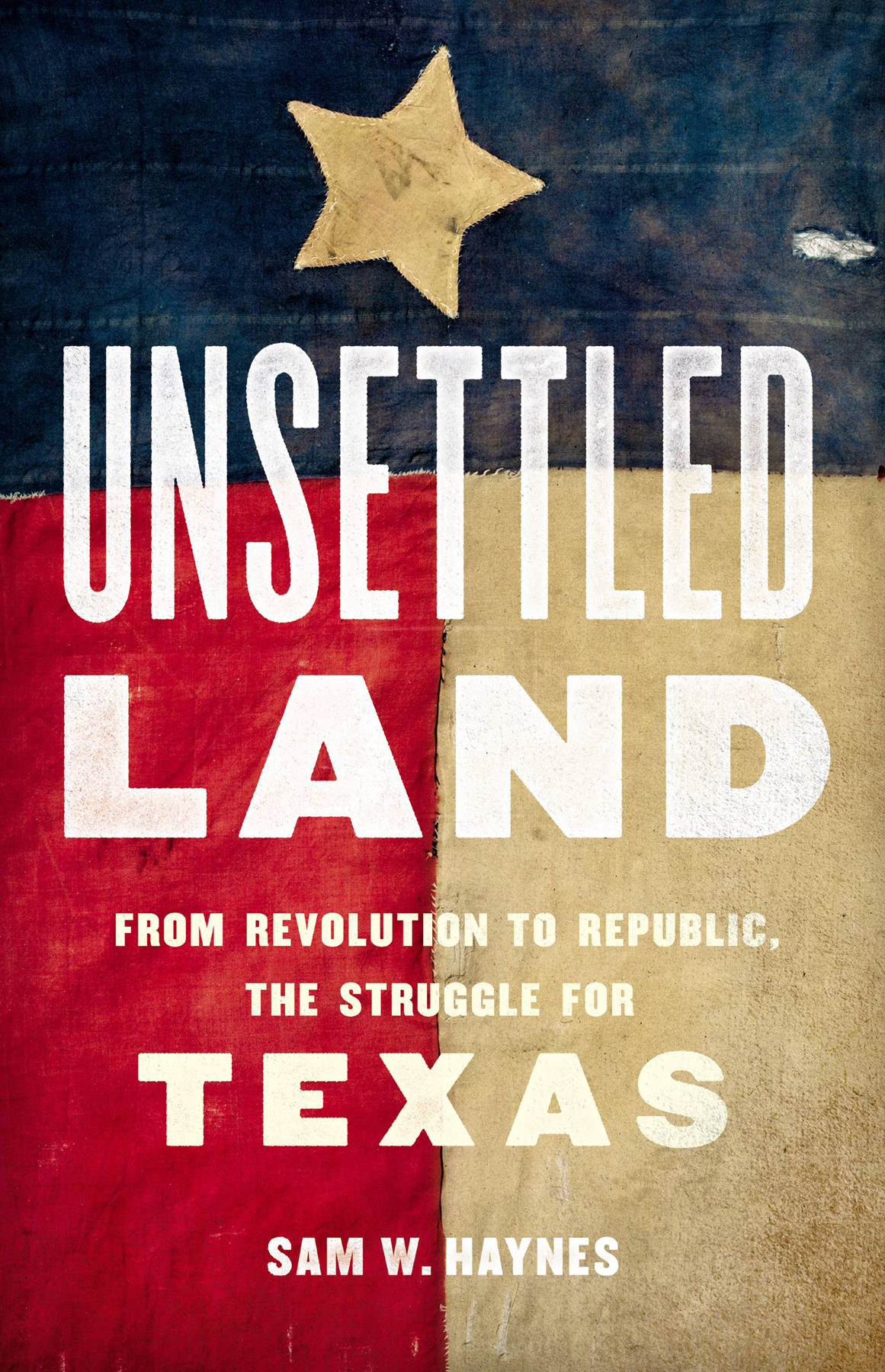
This is the book we desperately need on the Texas Revolution. Unsettled Land shows Texas as it was, not as it has appeared on the set of The Alamo . Sam W. Hayness Texas was a multiracial society, where free African Americans became prominent merchants, and where white land speculators staged revolts with Indigenous allies. For the likes of Sam Houston and Stephen Austin, the Texas Revolution promised freedom from Mexican rule. But for the Indigenous peoples and African Americans who had forged lives in Mexican-era Texas, independence signaled a loss of freedom. With gripping prose, Haynes captures both the drama and the complexity of the Mexican province that would eventually become the Lone Star State.
Alice L. Baumgartner, author of South to Freedom
No chapter in American history calls more for a thorough retelling than the origins of Texas. In the vividly written Unsettled Land , Haynes meets that challenge, and his story is vastly more revealing than the tired myths that have held the stage for so long. Once one of the most ethnically and culturally diverse areas on the continent, Texas underwent a steady narrowing of possibilities until by the war with Mexico it was saddled with an iron Anglo rule that shoved to the margins the Native peoples, Hispanos, Blacks, and others who had played so prominently in its early years. It is a fascinating, if dispiriting, story.
Elliott West, University of Arkansas

L ISA H OLLAND
S AM W. H AYNES is a professor in the department of history and the director of the Center for Greater Southwestern Studies at the University of Texas at Arlington. He lives in Dallas, Texas.

Published in Cooperation with the William P. Clements Center for Southwest Studies, Southern Methodist University
Copyright 2022 by Sam W. Haynes
Cover design by Ann Kirchner
Cover images GRANGER; Lukasz Szwaj / Shutterstock.com
Cover copyright 2022 by Hachette Book Group, Inc.
Hachette Book Group supports the right to free expression and the value of copyright. The purpose of copyright is to encourage writers and artists to produce the creative works that enrich our culture.
The scanning, uploading, and distribution of this book without permission is a theft of the authors intellectual property. If you would like permission to use material from the book (other than for review purposes), please contact permissions@hbgusa.com. Thank you for your support of the authors rights.
Basic Books
Hachette Book Group
1290 Avenue of the Americas, New York, NY 10104
www.basicbooks.com
First Edition: May 2022
Published by Basic Books, an imprint of Perseus Books, LLC, a subsidiary of Hachette Book Group, Inc. The Basic Books name and logo is a trademark of the Hachette Book Group.
The Hachette Speakers Bureau provides a wide range of authors for speaking events. To find out more, go to www.hachettespeakersbureau.com or call (866) 376-6591.
The publisher is not responsible for websites (or their content) that are not owned by the publisher.
Library of Congress Cataloging-in-Publication Data has been applied for.
ISBNs: 9781541645417 (hardcover), 9781541645400 (ebook)
E3-20220330-JV-NF-ORI
For Lisa
MAPS
ILLUSTRATIONS
I T WAS CLEAR FROM THE BEGINNING THAT THE B EALES COLONISTS were out of their depth. They were not weather-beaten, hardscrabble frontierspeople. Some had never wielded an axe or plowed a field in their lives. But in the spring of 1834 they found themselves on the banks of Las Moras Creek, a few miles above the Rio Grande, lured to this remote spot by the promise of free land. Numbering about sixty men, women, and children, they had been recruited in New York City by an English land agent, John Charles Beales, authorized by the Mexican government to settle an area on the upper Rio Grande, about three hundred miles from the Gulf Coast. A handful were Americans, but most hailed from the British Isles, France, and Central Europe. They included Eduard Ludecus, a well-educated twenty-six-year-old native of Weimar, Germany, whose rsum included a job as a clerk in a dry goods store. Another settler, John Horn, owned a shop in London before setting out for America with his wife, Sarah, and their two boys. Even Beales, a doctor by training, was himself a stranger to Texas, with no experience in the business of settling a raw and untamed wilderness.
As the immigrants surveyed the land on which they would make their new homes, they were overcome by feelings of despair. Stretched out before them lay an unending vista of thornscrub and mesquite. They may not have been seasoned farmers, but they needed only to look at the hard, sunbaked soil, where rattlesnakes and scorpions seemed to lie under every rock, to know that little could grow there,
Incredibly, no one had told Ludecus about the Comanches, either. From their encampments on the Low Plains far to the north, raiding parties on horseback regularly passed through the area on their way to plunder the ranches below the Rio Grandean important piece of information Beales neglected to share with the colonists until they arrived. To protect the group, the land agent hired a few dozen armed men from the Mexican towns along the river. Some were longtime veterans of the northern frontiers many years of conflict with the tribe, but others seemed as frightened of the Comanches as the Europeans were. The immigrants could at least be thankful for the presence of a band of Shawnees, who happened to be on a hunting expedition in the area. They, too, were far from home, having drifted onto the prairies of northeast Texas some years earlier, one of many American tribes that migrated into Mexico after the turn of the century. Bitter enemies of the Comanches, the Shawnees had befriended the greenhorns, providing the little colony with a steady supply of wild turkeys from the woods along the creek.
Whatever their misgivings, the immigrants were here now, and they tried to make the best of it. They spent several days clearing away the underbrush for what they hoped would one day be a town plaza, and erected huts with the only materials available to them: mesquite poles daubed with mud for the walls, clumps of prairie grass as thatch for the roofs. In late March they held an elaborate ceremonyor as elaborate as the primitive conditions would allowchristening Mexicos newest town the Villa de Dolores, after Bealess wife. Laying a cornerstone where they intended to build a church, the members of the little community then swore loyalty oaths to the Mexican republic and held elections for municipal offices. Their business concluded, the settlers ended the day with a concert and a ball, as Ludecus wryly put it.
That night, under a star-studded, obsidian sky, the residents of DoloresEuropeans, Americans, Mexicans, and Indiansgathered around a large, blazing fire. For such a special occasion the colonists donned their most formal attire, better suited to a New York City promenade than a rugged wilderness, the men in round felt hats, frock coats, and stiff-collared white shirts, the women in their finest embroidered dresses. Some members of the audience lounged on deerskins; others sat on the newly cut trunks of mesquite trees.
Font size:
Interval:
Bookmark:
Similar books «Unsettled Land»
Look at similar books to Unsettled Land. We have selected literature similar in name and meaning in the hope of providing readers with more options to find new, interesting, not yet read works.
Discussion, reviews of the book Unsettled Land and just readers' own opinions. Leave your comments, write what you think about the work, its meaning or the main characters. Specify what exactly you liked and what you didn't like, and why you think so.






